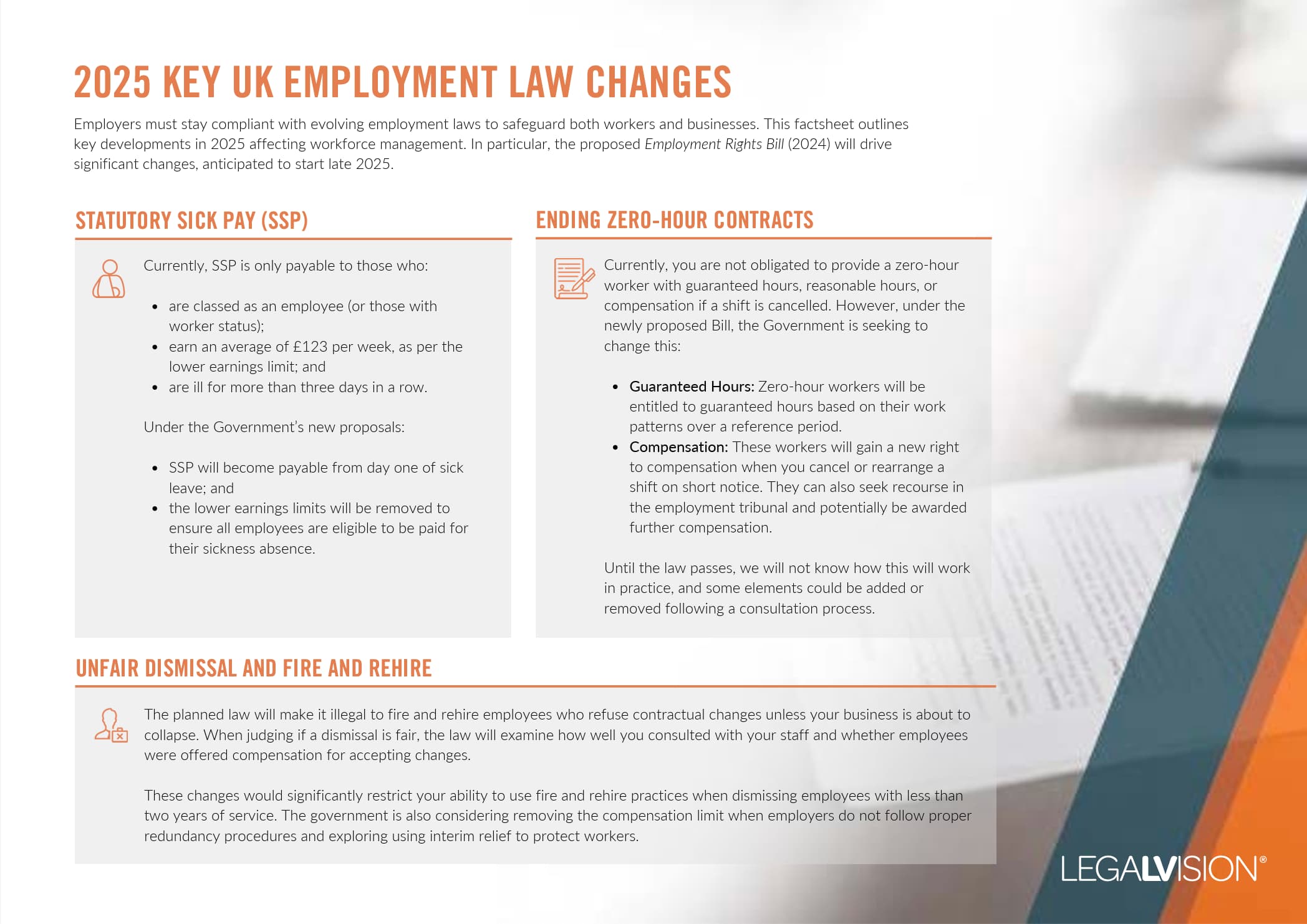In Short
- A probationary period allows businesses to assess new employees’ suitability in their role.
- It provides a framework for giving feedback and offering support to new hires.
- Employers should clearly communicate expectations and provide regular evaluations during this period.
Tips for Businesses
Clearly outline the goals and expectations for your new employees during their probationary period. Provide consistent feedback and support, allowing them to understand their performance. Regular check-ins can help identify any issues early, enabling you to address them promptly and effectively. This approach ensures a smoother integration into your business.
In today’s dynamic business landscape, the process of onboarding new talent or promoting existing team members carries risks and opportunities. When you invest your company’s resources (both time and financial) into an individual, you often do so with limited insight into their full potential and cultural fit. To mitigate these risks, many organisations implement probationary periods. This approach allows you to assess an employee’s performance, adaptability and alignment with your company’s values in real-time before committing to a long-term engagement. In this article, we will explore:
- what probationary periods are;
- how they work; and
- the potential forthcoming changes in the employment law space.
What is an Employment Probationary Period?
When an employee starts working for you, you may have a probationary period in place. This allows you to test their ability to perform the job and ensure they are the right fit for your company. Many also refer to a probation period as a ‘trial period’.
Whilst it benefits the employer, a probationary employment period can also help your employee decide if the role suits them. Evidence suggests that including a probationary period makes it more likely that the employee will be successful in the job.
Employment Rights During a Probationary Period
All statutory legal rights which apply to an employee also apply during their probationary period. This includes:
- the requirement to make reasonable adjustments if your employee has a disability;
- the right not to be unlawfully discriminated against;
- receiving the national minimum wage;
- statutory sick pay; and
- maternity and paternity leave.
However, there are some exceptions. Notably, you can often terminate the contract on shorter notice during the probationary period. You may also detail further contractual rights, which may apply differently during a probationary period than when the probationary has ended. For instance, employee benefits. Nonetheless, your employee’s employment contract must state this.
That being said, there are some rights, such as ordinary unfair dismissal, that employees with less than two years of service will be unable to bring. From a commercial perspective, this has tended to mean that you could look to dismiss employees without two years of service more easily.
Continue reading this article below the formCall 0808 196 8584 for urgent assistance.
Otherwise, complete this form, and we will contact you within one business day.
What is the Length of an Employment Probationary Period?
As a probationary period is not a legal requirement, there are no rules regarding your employee’s probationary period length, though you should choose a reasonable length of time. For new employees, probationary periods are usually no more than six months. You will need to detail the length of your employee’s probationary period within their employment contract.
It is possible to extend your employee’s probationary period in some circumstances. You may require this if you need more time to decide whether the employee is suitable for the role. However, you can only extend your employee’s probationary period where their employment contract states that you can do this. If you extend an employment probationary period, you should state in writing the:
- reason for extending;
- length of the new period;
- expectations you have of your employee; and
- support available to them.

This factsheet outlines key developments in 2025 affecting workforce management.
Expectations of Employment Probationary Periods
The start of your employee’s probationary period is often the beginning of their employment with your business. Therefore, it is good practice to set out the values of your business.
You should set out:
- what you want your employee to achieve in their role, being specific about what they should achieve;
- attendance standards;
- behaviour standards;
- any training requirements;
- how you will address performance issues; and
- when you will hold probationary period review meetings.
Other Key Points
There are other important matters concerning probationary periods, some of which may not be obvious to you or your employees. Below are some of the critical points regarding probationary periods.
- The date your employee begins their employment with you is their first day at work rather than the day after their probationary period ends.
- You should hold reviews with your employee during their probationary period, which could be weekly or monthly, and you should keep written records of these. It is also good practice for you and your employee to sign the records.
- Where you identify performance issues during their probationary period, you must address those immediately rather than waiting until a scheduled review meeting.
- At the final review meeting, you should let your employee know if their probationary period has been successful and where it has, follow this up with a written confirmation.
- Where an employee has not been successful at the end of their probationary employment period, you can, if you have the contractual right, either extend the period or terminate their employment contract.
- Where you decide to dismiss your employee at the end of their probationary period, you must do so reasonably. While workers with under two years of service cannot being a claim for ordinary unfair dismissal, they could claim wrongful dismissal or submit discrimination claims.
Key Takeaways
As an employer, including a probationary period of employment can be very useful to allow you to test the suitability of someone before committing them more permanently. While a probationary period is not currently a legal requirement, there are rules and expectations. Therefore, you should be aware of these to ensure that you act correctly and fairly towards your employees.
If you need help understanding your employer obligations, our experienced employment lawyers can assist as part of our LegalVision membership. For a low monthly fee, you will have unlimited access to lawyers to answer your questions and draft and review your documents for a low monthly fee. So call us today on 0808 196 8584 or visit our membership page.
Frequently Asked Questions
If an employee does not meet the required standards during probation, the employer may choose to terminate their employment, usually with a shorter notice period than for regular employees.
Excessive sick leave during probation may be considered when assessing an employee’s suitability. In some cases, employers might extend the probationary period to account for significant absences.
We appreciate your feedback – your submission has been successfully received.












